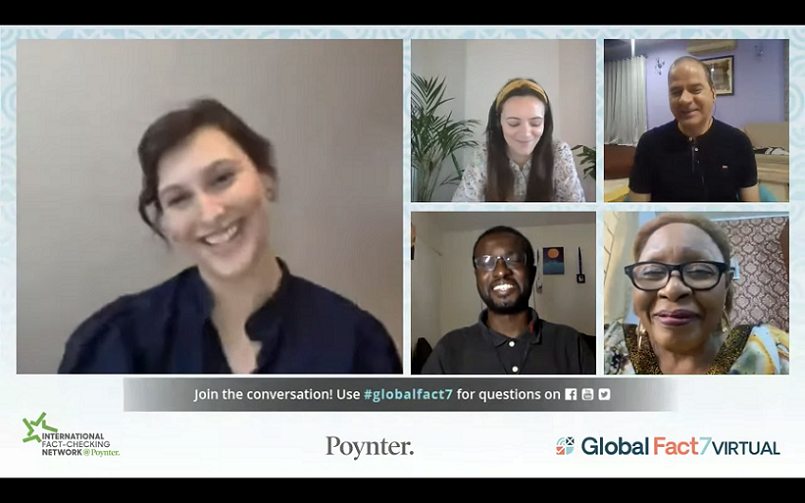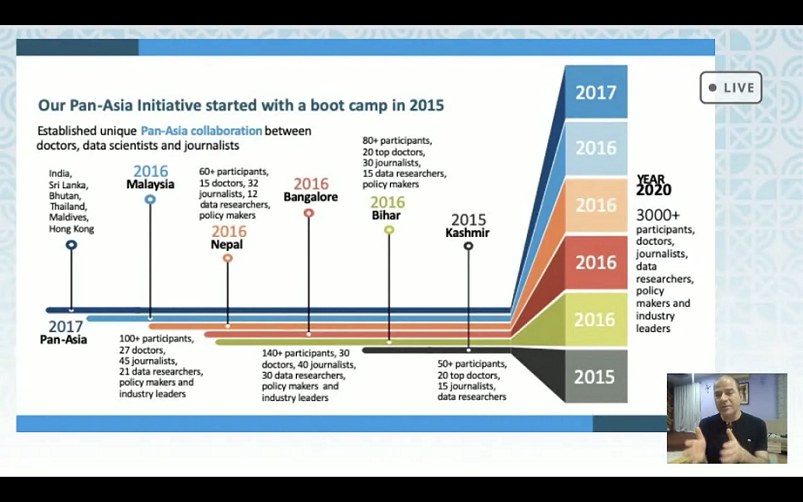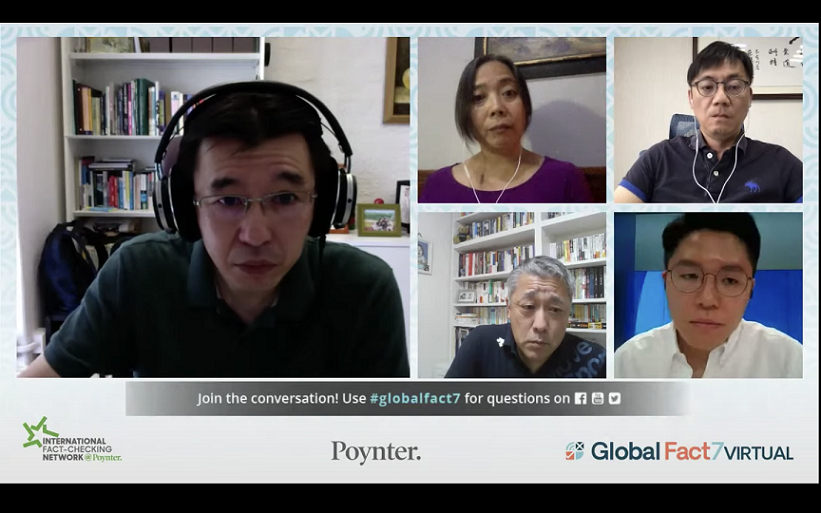 Panel on health misinformation at Global Fact7 hosted by Meedan’s Nat Geynes.
Panel on health misinformation at Global Fact7 hosted by Meedan’s Nat Geynes.
Fact checkers push for increased collaboration in dealing with health misinformation amid the COVID-19 pandemic.
“We need to have collaboration with different stakeholders to make sure we understand and combat the problem better,” India-based DataLEADS Founder and Editor-in-Chief Syed Nazakat said during an online forum on “Tackling health misinformation with truth, trust, and tactics,” at this year’s Global Fact 7, organized by the International Fact-Checking Network.
Saying that “deep collaboration is critical,” Nazakat said “Instead of talking to each other, journalists need to build collaboration with different domain experts to combat misinformation.”
Nazakat shared his experience with First Check, a Pan-Asian network of doctors, data scientists and journalists working together to address medical misinformation since 2015.
Collaboration, however, has its challenges, Nazakat said as he shared their experience of information overload which may result from an arena of different perspectives and specializations, mirroring that which the world currently faces.

The World Health Organization has coined the term “infodemic” referring to “excessive amounts of information about a problem, making it difficult to identify a solution.”
WHO warned that infodemics can potentially interfere with effective public health responses and cause confusion and distrust among people.
Dr. Dora-Olivia Vicol, a researcher and social anthropologist with Full Fact, a UK-based fact checking organization, said a “misinfodemic” triggered by a global health emergency is not entirely unprecedented. Health myths thrive on fear, uncertainty and information overload. Crises, characterized by mental states of anxiety and hopelessness, tend to disrupt cognition and diminish people’s capacity to process complex information.
“Processing information gets harder in times of uncertainty [so we must] use clear [and] simple messaging and design and repeat messages consistently,” she advised.
Africa-based PesaCheck managing editor Eric Mugendi said, “[Health misinformation] manifests similarly to how you would see a disease manifesting.”
“Sometimes it’s a symptom in itself of a broader condition of false information spreading. […] In the absence of credible information, we find this false information creeping in,” he added.
Mugendi’s newsroom faces this challenge head-on, constantly elevating their fact-checking process to “help tackle misinformation at its core.”
Their approach to fighting health misinformation puts a premium on studying the anatomy of false claims, highlighting reliable sources of factual information and connecting audiences with subject matter experts.
Mugendi also underscored the significance of balancing the newsroom’s own research with expert inputs saying, “We work with credible organizations and trusted entities [but] we don’t say just ‘because this entity says it is false, it is false.’”
Each panelist affirmed the importance of collaborative, intersectoral action in understanding the current information landscape and addressing health myths with effective and impactful fact-checks. Now more than ever, pooling knowledge is key to deterring dangers posed by false health claims.
Jo Comuyog is a University of the Philippines student writing for VERA Files as part of her internship.
